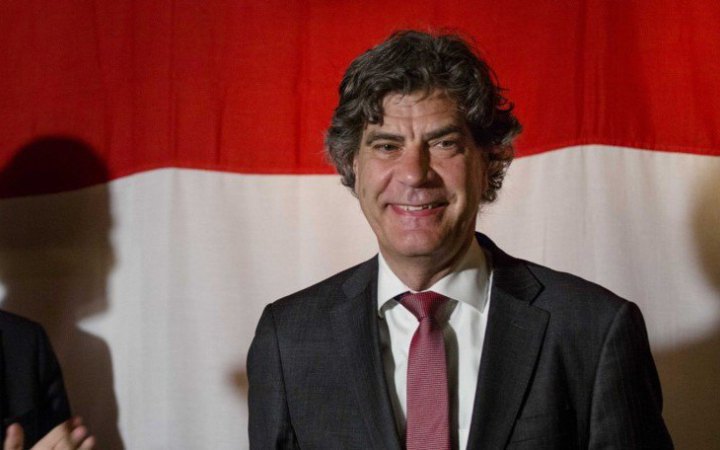Politico analysed 50 videos on the YouTube channel of the Russian propaganda outlet Voice of Europe, which was contributed by 16 MEPs.
"If this is a war of civilisations, I hope that civilisation in Ukraine loses," said Marcel de Graaff, a Dutch far-right lawmaker, from a TV studio in the European Parliament last October.
"Ukraine should become a demilitarised buffer zone," said German far-right politician Maximilian Kra, addressing the other four participants in the studio. The debate was organised by Voice of Europe, a news agency that Czech and Belgian authorities in March called a front for Russian propaganda and disinformation.
The Czech authorities have imposed sanctions on two leaders of the Voice of Europe, one of whom is a long-time friend of Russian leader Vladimir Putin, Ukrainian oligarch Viktor Medvedchuk.
Politico's review of all 50 videos on the Voice of Europe YouTube channel found that 16 members of the European Parliament have collaborated with the outlet, all of whom range from the radical right to the far right. MEPs and politicians from governments in Central and Eastern Europe have given video interviews to the channel, which has only 351 YouTube subscribers and only 60,000 views since last summer.
However, his reach on the social media platforms X and Facebook was much wider, and his X account is still active. In a lengthy post on X, his account accused the "globalist media" of "wild speculation and absurd accusations" about their links to Russia, which they insisted were unfounded.
The 13 MEPs contacted by Politico denied having accepted or been offered money.
Most MEPs said they could not recall who invited them to the debate, how they were contacted, or who interviewed them in person in their parliamentary offices.
Following the revelations, YouTube removed dozens of videos from the parliamentary debate from its website in violation of its policy on misleading content. Although Belgian Prime Minister Alexander De Croo claimed that members of the European Parliament received money from the organisation, there is no evidence that these MPs took money for such appearances, Politico notes.








